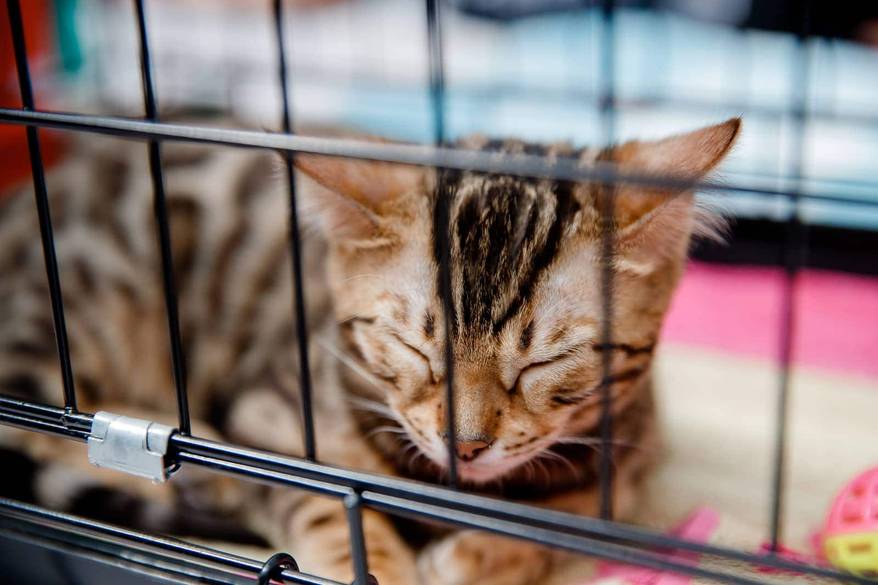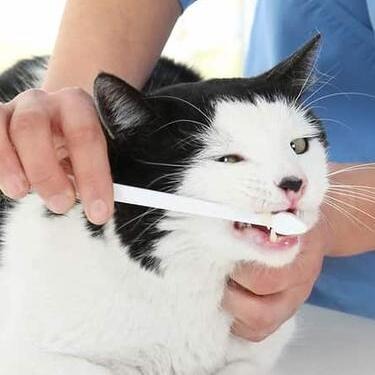
-
Find the right food for your petTake this quiz to see which food may be the best for your furry friend.Find the right food for your petTake this quiz to see which food may be the best for your furry friend.Featured products
 Adult 7+ Small & Mini Chicken & Brown Rice Recipe Dog Food
Adult 7+ Small & Mini Chicken & Brown Rice Recipe Dog FoodFor the unique nutritional needs of mature Small & Mini dogs
Shop Now Hill's Science Diet Adult Oral Care Chicken, Brown Rice & Barley Recipe Dog Food
Hill's Science Diet Adult Oral Care Chicken, Brown Rice & Barley Recipe Dog FoodClinically proven kibble technology to reduce plaque & tartar build-up
Shop Now Adult Small & Mini Lamb Meal & Brown Rice Recipe Dog Food
Adult Small & Mini Lamb Meal & Brown Rice Recipe Dog FoodFor the faster metabolism of Small & Mini dogs
Shop NowFeatured products Adult Indoor Chicken Recipe Cat Food
Adult Indoor Chicken Recipe Cat FoodSupports energy level and beautiful fur in indoor cats
Shop Now Hill's Science Diet Adult Sensitive Stomach & Skin Dog Food
Hill's Science Diet Adult Sensitive Stomach & Skin Dog FoodHighly digestible recipe, gentle on stomachs. Nourishes skin & promotes a lustrous coat
Shop Now Adult Urinary Hairball Control Chicken & Rice Recipe Cat Food
Adult Urinary Hairball Control Chicken & Rice Recipe Cat FoodActively supports the health of the whole urinary system
Shop Now -
Featured articles
 Easy DIY Dog & Cat Toys: Nine of Our Favorites
Easy DIY Dog & Cat Toys: Nine of Our FavoritesBrowse this comprehensive guide for several of our favorite DIY dog and cat toys that are sure to put a little pep in your pet's step.
Read More 15 Pet-Friendly Cities Ideal for a US Road Trip
15 Pet-Friendly Cities Ideal for a US Road TripCheck out our list of pet-friendly U.S. cities that are excellent travel options, offering off-leash dog parks and pet-friendly restaurants & hotels.
Read More My Pet Ate a Lizard — What Should I Do?
My Pet Ate a Lizard — What Should I Do?Learn what to do if your pet eats a lizard, including whether they can be toxic and symptoms to keep an eye on when they've swallowed one.
Read More -


Does your dog or cat appear to have a cold? While your pets can't catch the cold you got from your neighbor's preschooler, they are susceptible to a similar illness commonly known as kennel cough. Keep reading to learn how to prevent, recognize and treat this illness in your pet.
What Is Kennel Cough?
Kennel cough is the common name for infectious tracheobronchitis, a highly infectious respiratory illness that can affect both dogs and cats. One of the most common causes for kennel cough is bordetella; it affects pets in a similar manner to the common cold in humans. Like a cold, it can lead to more serious illnesses, such as pneumonia, if left untreated. It is typically caused by the bacteria Bordetella bronchiseptica, which is spread through airborne particles as well as direct contact.
Is It Contagious?
Not only is this illness highly contagious, but it can be transmitted across different species. Your cat and dog give this illness to one another as well as to you and the other humans in your household, although the chances of this happening are slim. Regardless, a sick pet should be kept away from very young children, the elderly and anyone in the household with a compromised immune system.
Besides being spread through coughing, sneezing and direct contact, the bordetella bacteria can also be contracted from contaminated surfaces. Be sure to thoroughly wash your hands after handling your pet, as well as his food and water dishes, bedding and toys.
Signs
The illness affects dogs and cats slightly differently, but they can share certain signs. Keep an eye out for these clues:
- Coughing, which is more common to dogs than cats
- Respiratory distress
- Sneezing
- Nasal discharge
- Exercise intolerance in cats
- Runny, goopy or crusty eyes
- Fever
- Lethargy
- Appetite loss
- Swollen lymph nodes located in the armpits or the lower jaw
Should You See a Vet?
Although this is usually a self-limiting illness, meaning that it usually clears up on its own with plenty of rest, it's important to have your pet checked by a veterinarian if you notice any signs. One reason is that severe cases may require treatment with antibiotics to prevent the condition from progressing.
The most important reason to see the vet is that these signs could indicate a more serious illness, such as influenza, asthma, other respiratory infections or heart disease. It's safer for your pet to let the vet provide the diagnosis rather than trying to diagnose it on your own.



Tasty Tips
Young pets may need several visits in their first year for vaccinations. Adult pets generally benefit from annual check-ups, while senior or special-needs pets might require more frequent visits.
Kennel Cough Treatments
For mild cases, your vet will typically prescribe plenty of rest and separation from other pets and any immunocompromised family members. Your vet may prescribe a series of antibiotics if there is any concern that a secondary infection might occur, or if an infection is the root cause for the kennel cough.
For severe coughing, your pet might also be prescribed pet-safe cough medication, but under no circumstances should a pet ever be given over-the-counter cough or cold medications intended for humans. It's also important to use a harness rather than a leash and collar combination on a dog with kennel cough in order to prevent damage or irritation to the trachea, which could make his cough worse.
Preventing Kennel Cough
A vaccine for bordetella is available for cats and dogs and is generally recommended if your pet is going to be exposed to a large number of strange pets. If you plan to board your dog at a kennel or place him in doggy daycare, a bordetella vaccine will typically be required.
However, the vaccine is not 100 percent effective. The best prevention, says PetWave, is to practice good hygiene and to keep new pets from coming into contact with neighbors' or established household pets for several weeks after entering your home.https://www.petwave.com/Dogs/Health/Kennel-Cough/Causes.aspx
The good news is that this illness is usually no more serious for pets than the common cold is for us, although there are exceptions. Just as a cold can be serious for an immunocompromised person, kennel cough can be hard on pets who already have serious illnesses. So, check with your vet if your fur baby seems to have the sniffles or a persistent cough. Chances are, what your pet needs most is plenty of rest and TLC.


Jean Marie Bauhaus is a pet parent, pet blogger, and novelist from Tulsa, Oklahoma, where she usually writes under the supervision of a lapful of fur babies.
Related products

For the faster metabolism of Small & Mini dogs

Improves everyday ability to get up & go

Clinically proven kibble technology to reduce plaque & tartar build-up

For the unique nutritional needs of mature Small & Mini dogs
Related articles

Learn about veterinary dental care for your pet, including deep teeth cleaning procedures, which can help your dog or cat maintain proper dental health.

Check out our list of pet-friendly U.S. cities that are excellent travel options, offering off-leash dog parks and pet-friendly restaurants & hotels.

Learn what to do if your pet eats a lizard, including whether they can be toxic and symptoms to keep an eye on when they've swallowed one.

Browse this comprehensive guide for several of our favorite DIY dog and cat toys that are sure to put a little pep in your pet's step.

Put your pet on a diet without them knowing
Our low calorie formula helps you control your pet's weight. It's packed with high-quality protein for building lean muscles, and made with purposeful ingredients for a flavorful, nutritious meal. Clinically proven antioxidants, Vitamin C+E, help promote a healthy immune system.
Put your pet on a diet without them knowing
Our low calorie formula helps you control your pet's weight. It's packed with high-quality protein for building lean muscles, and made with purposeful ingredients for a flavorful, nutritious meal. Clinically proven antioxidants, Vitamin C+E, help promote a healthy immune system.

